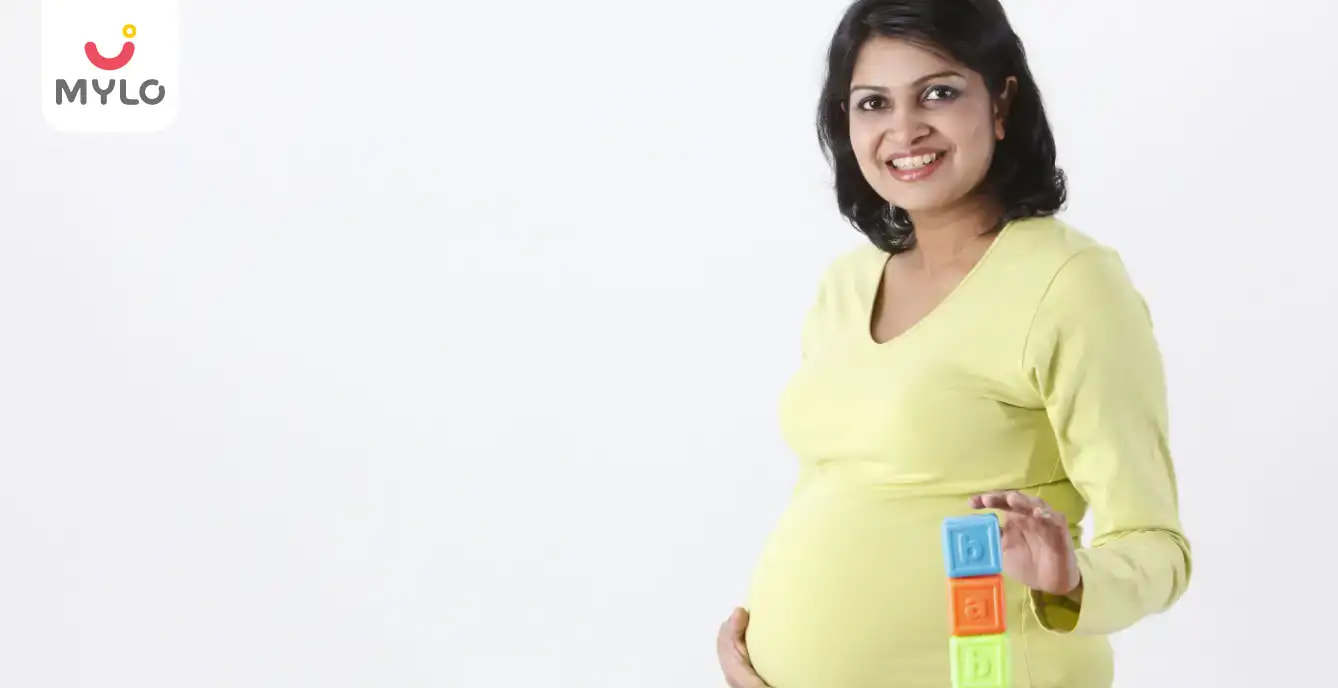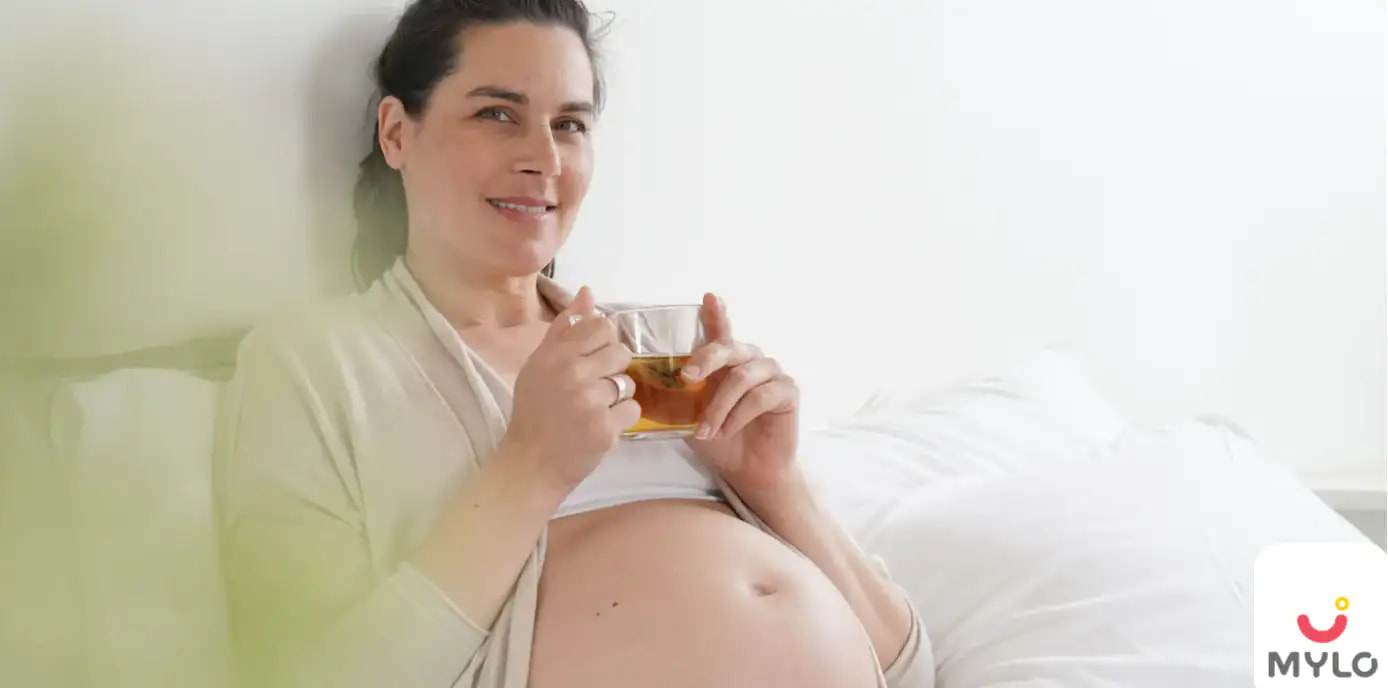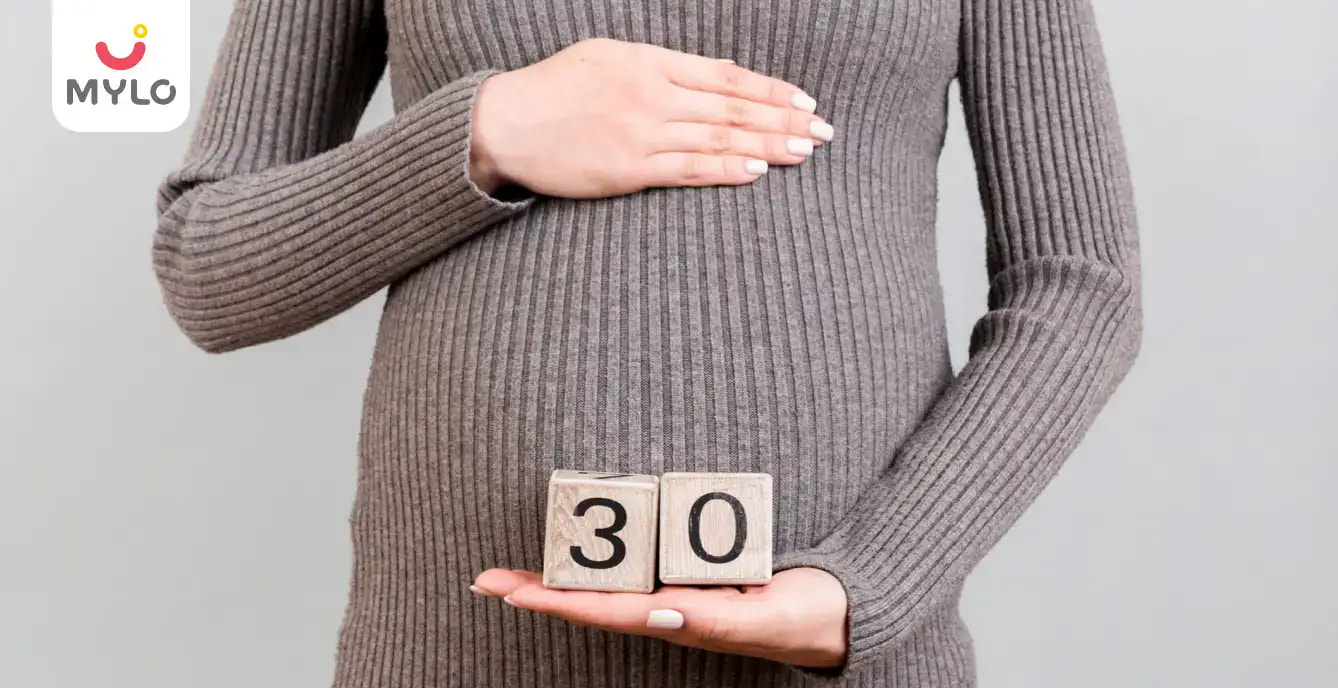Home

Geriatric Pregnancy Risks & Benefits
In this Article

Pregnancy
Geriatric Pregnancy Risks & Benefits
Updated on 3 November 2023
In recent years, there has been a growing trend of women choosing to postpone having children. With the increasing prevalence of delayed motherhood, more and more women now find themselves at advanced maternal age —defined as being older than 35 years old. It poses a unique set of risks and benefits that one should be made clear before deciding whether or not to pursue geriatric pregnancy. In this article, we will discuss the various implications associated with geriatric pregnancy.
What is advanced maternal age?
As a woman ages, her fertility begins to decline. It is due to a decrease in the number and quality of eggs. By age 35, a woman's fertility has already begun to decline and by age 40, it has decreased significantly. This decrease in fertility is why advanced maternal age (AMA) is defined as being 35 years or older at the time of delivery. Advancing maternal age is a risk factor for pregnancy complications.
Is geriatric pregnancy the same as advanced maternal age?
Women who are 35 or older are considered to have “geriatric pregnancies.”
While the phrase “geriatric pregnancy” may sound like a medical diagnosis, it’s just a way to describe pregnancies in older women pr advanced maternal age. The term doesn’t refer to any specific medical condition or health risks.
If you are over 35, is it more difficult to conceive?
If you are over 35, you may have a harder time conceiving than someone younger. This is because fertility declines with age. With the help of a fertility specialist, you can increase your chances of conceiving.
How are my eggs impacted by advanced mother age?
There are a few things that happen to eggs as they age:
• The quantity and quality of eggs decrease. This can make it more difficult to conceive, and also increases the risk of miscarriage and genetic abnormalities.
• Eggs become more fragile. As eggs age, they become more fragile and are more likely to break during ovulation or fertilization.
• Over time, the DNA in eggs becomes damaged. This can cause problems with cell division and development, leading to genetic abnormalities.
Risks of having a child beyond the age of 35
It is well established that older women's pregnancy is at increased risk for complications. These risks include:
-
An increased incidence of chromosomal abnormalities, such as Down syndrome
-
Higher risk for gestational diabetes
-
Cesarean delivery.
Additionally, older mothers are more likely to have a baby with low birth weight or a birth defect.
Benefits of having a child after the age of 35
Some people believe that having a child later in life comes with several benefits.
- You may be more financially stable and have a better understanding of what it takes to be a parent.
- You may be more patient and mature, which can be beneficial when raising a child.
Of course, every situation is different and there are risks associated with geriatric pregnancy. However, if you are healthy and have a supportive partner, there is no reason why you cannot have a successful pregnancy at an older age.
What diagnostic procedures are suggested for pregnancy in an older woman?
Some of the diagnostic tests and procedures that may be recommended for an elderly pregnancy include:
-A blood test to check for chromosomal abnormalities such as Down syndrome
-An ultrasound to assess the baby's development and check for any birth defects
-A non-stress test to monitor the baby's heart rate
-Frequent prenatal visits to monitor the mother's health and the baby's development.
Treatment for advanced maternal age pregnancies
Several things can be done to help reduce the risks associated with pregnant old women.
First, it is important to see a healthcare provider who is experienced in caring for pregnant women of all ages. This will ensure that you receive the best care possible.
Second, make sure to get regular prenatal care. This will help your healthcare provider identify any potential problems early on.
Third, eat a healthy diet and get plenty of rest. This will help your body to be as strong as possible during pregnancy.
Fourth, take measures to avoid infections. This includes getting vaccinated against the flu and staying away from people who are sick.
Finally, if you have any medical conditions, make sure to discuss them with your healthcare provider so that they can be managed during pregnancy.
Conclusion
Geriatric pregnancy is a special topic that can be both scary and exciting at the same time. Although advanced maternal age does bring some risks, women in their late 30s and early 40s who are planning to conceive should know that there are also many benefits associated with geriatric pregnancy. With proper care, consultation with a healthcare provider, and an awareness of potential risks, geriatric pregnancy can be an enriching experience for mothers of all ages. Visit Mylo Family to learn about possible complications during pregnancy and how to overcome them.
You may like: What is the Ideal Age to Get Pregnant



Written by
Parul Sachdeva
A globetrotter and a blogger by passion, Parul loves writing content. She has done M.Phil. in Journalism and Mass Communication and worked for more than 25 clients across Globe with a 100% job success rate. She has been associated with websites pertaining to parenting, travel, food, health & fitness and has also created SEO rich content for a variety of topics.
Read MoreGet baby's diet chart, and growth tips

Related Articles
Related Questions
Hello frnds..still no pain...doctor said head fix nhi hua hai..bt vagina me pain hai aur back pain bhi... anyone having same issues??

Kon kon c chije aisi hai jo pregnancy mei gas acidity jalan karti hain... Koi btayega plz bcz mujhe aksar khane ke baad hi samagh aata hai ki is chij se gas acidity jalan ho gyi hai. Please share your knowledge

I am 13 week pregnancy. Anyone having Storione-xt tablet. It better to have morning or night ???

Hlo to be moms....i hv a query...in my 9.5 wk i feel body joint pain like in ankle, knee, wrist, shoulder, toes....pain intensity is high...i cnt sleep....what should i do pls help....cn i cosult my doc.

Influenza and boostrix injection kisiko laga hai kya 8 month pregnancy me and q lagta hai ye plz reply me

Related Topics
RECENTLY PUBLISHED ARTICLES
our most recent articles

Diet & Nutrition
গর্ভাবস্থায় আলুবোখরা: উপকারিতা ও ঝুঁকি | Prunes During Pregnancy: Benefits & Risks in Bengali

Diet & Nutrition
গর্ভাবস্থায় হিং | ঝুঁকি, সুবিধা এবং অন্যান্য চিকিৎসা | Hing During Pregnancy | Risks, Benefits & Other Treatments in Bengali

Women Specific Issues
স্তনের উপর সাদা দাগ: লক্ষণ, কারণ এবং চিকিৎসা | White Spots on Nipple: Causes, Symptoms, and Treatments in Bengali

Diet & Nutrition
গর্ভাবস্থায় পোহা: উপকারিতা, ধরণ এবং রেসিপি | Poha During Pregnancy: Benefits, Types & Recipes in Bengali

Diet & Nutrition
গর্ভাবস্থায় মাছ: উপকারিতা এবং ঝুঁকি | Fish In Pregnancy: Benefits and Risks in Bengali

Diet & Nutrition
গর্ভাবস্থায় রেড ওয়াইন: পার্শ্ব প্রতিক্রিয়া এবং নির্দেশিকা | Red Wine During Pregnancy: Side Effects & Guidelines in Bengali
- ইনার থাই চ্যাফিং: কারণ, উপসর্গ এবং চিকিৎসা | Inner Thigh Chafing: Causes, Symptoms & Treatment in Bengali
- গর্ভাবস্থায় ব্রাউন রাইস: উপকারিতা ও সতর্কতা | Brown Rice During Pregnancy: Benefits & Precautions in Bengali
- Velamentous Cord Insertion - Precautions, Results & Safety
- Unlock the Secret to Flawless Skin: 7 Must-Have Qualities in a Face Serum
- Unlock the Secret to Radiant Skin: How Vitamin C Serum Can Transform Your Complexion
- Gender No Bar: 10 Reasons Why Everyone Needs a Body Lotion
- Unlock the Secret to Radiant Skin How to Choose the Perfect Body Lotion for Your Skin Type
- Top 10 Reasons to Apply a Body Lotion After Every Bath
- Communication in Toddlers: Milestones & Activities
- How to Improve Vocabulary for Toddlers?
- A Comprehensive Guide to Understanding Placenta Accreta
- Vulvovaginitis in Toddlers Causes, Symptoms and Treatment
- A Comprehensive Guide to Understanding Cerebral Palsy in Children
- Bitter Taste in Mouth During Pregnancy: Understanding the Causes and Remedies


AWARDS AND RECOGNITION

Mylo wins Forbes D2C Disruptor award

Mylo wins The Economic Times Promising Brands 2022
AS SEEN IN

- Mylo Care: Effective and science-backed personal care and wellness solutions for a joyful you.
- Mylo Baby: Science-backed, gentle and effective personal care & hygiene range for your little one.
- Mylo Community: Trusted and empathetic community of 10mn+ parents and experts.
Product Categories
baby carrier | baby soap | baby wipes | stretch marks cream | baby cream | baby shampoo | baby massage oil | baby hair oil | stretch marks oil | baby body wash | baby powder | baby lotion | diaper rash cream | newborn diapers | teether | baby kajal | baby diapers | cloth diapers |








